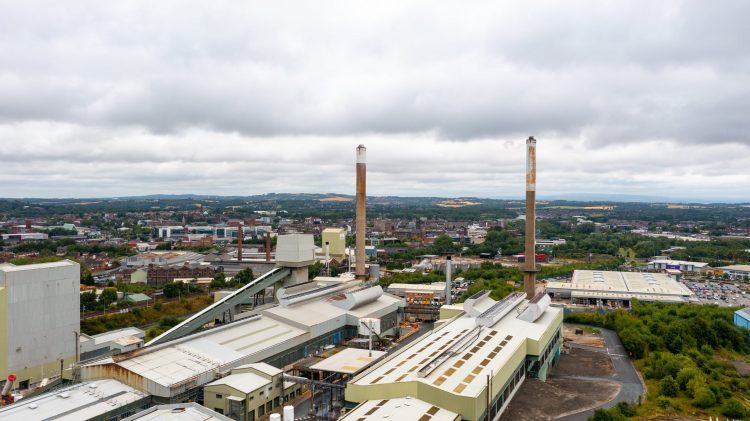Pilkington to close 197-year-old glass furnace
Glassmaker Pilkington will shut down a St Helens furnace that has been operating since 1826 and will invest in another plant across town, saving 15,000 tonnes of carbon a year. Tony McDonough reports

Glassmaker Pilkington is making a multi-million pound investment in St Helens that will see the closure of a furnace that has been operating for almost 200 years.
Pilkington UK, a subsidiary of the the Japanese Nippon Sheet Glass group, has been operating the furnace in Watson Street since 1826. It will close the facility down and transfer all staff and operations to Greengate elsewhere in the town.
This is part of a Government-backed project that will save 15,000 tonnes of carbon emissions each year. The company insists it will also secure the future of rolled glass manufacturing in the UK.
The move represents a major investment in its Greengate glass furnace, which melts the raw materials into glass as part of the manufacturing process.
It will be upgraded to accommodate its continued production of flat glass. It will also deliver the additional output required from the relocation of its Watson Street rolled glass manufacturing line.
Producing all glass out of the upgraded furnace, rather than running two, will save carbon emissions equivalent to taking 8,800 cars off the road each year.
Work on the projector will begin in August 2023, with the line due to be up and running by August 2024. Watson Street will remain open until then, with no impact expected on the availability of glass while the work takes place.
Funding for the change will come from a £3.7m grant via the Government’s Industrial Energy Transformation Fund. This helps cover the costs of industrial energy efficiency and decarbonisation projects in the UK.
Neil Syder, managing director of Pilkington UK, said: “This project represents one of the single biggest investments we’ve made in our UK manufacturing facilities in decades. It will ultimately secure the future of rolled glass manufacturing in the UK.
READ MORE: Pilkington signs hydrogen supply agreement
“Working out of one furnace will enable us to make a permanent and significant saving in CO2 emissions.
“It’s a radical shift in the way we operate, but we know that if we are to achieve our net-zero ambitions, we need to make change across all areas of our business.
“The Watson Street site has been operating since the 1800s and forms a key piece of our history. Throughout the years, the site has been instrumental in the development of different products, paving the way for a rich history of innovation in glass solutions.
“Yet this move marks a new chapter in our story that allows us to embrace more sustainable ways of making glass and continue to drive forward our vision for change, in partnership with the industry.”
This latest move also follows other work by Pilkington UK to reduce the emissions of its operations.
It completed several world-first trials of low carbon biofuel and zero carbon hydrogen fuels to fire its glass furnace last year. The trials ran in collaboration with the HyNet hydrogen consortium.

